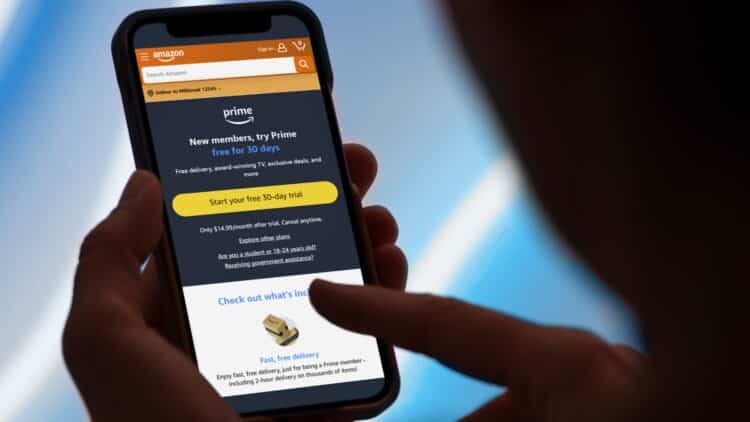Have you ever been tricked into subscribing to something (that you weren’t really convinced about) and then spent ages trying to cancel that same service? Welcome to the club of millions of people who have suffered the same fate with Amazon Prime! The online retail giant has gone too far in getting people to sign up for its Prime membership… So much so that the U.S. Federal Trade Commission has put a stop to it.
Although Amazon has denied any wrongdoing, a settlement has been reached for no less than $2.5 billion, the FTC’s highest civil penalty for consumer protection.
Best of all, much of the money will go back into the pockets of customers who, try as they might, were unable to cancel their Amazon Prime subscription.
Amazon’s website and its Dark Patterns
Canceling a membership shouldn’t be difficult; however, companies aim to psychologically hinder you as much as possible so that you give up and continue paying for their subscription. These web design tricks are called “dark patterns,” and they manipulate us into making decisions that we didn’t want to make in the first place. In this case, they cause us to subscribe without realizing it or make it difficult to cancel once we have decided to stop using their service.
Let’s be honest, Amazon isn’t the only company that does this. If you’ve ever had to cancel a phone line or a Fitness Planet membership, the only way to cancel your subscription seems to be to pretend you’re going to prison for life… or fake your own death.
The point is that the FTC accused Amazon of violating the Online Shopping Consumer Confidence Act. Some techniques, such as pop-ups that insistently suggest paying for the PRI while you are paying for something else, purchase buttons that do not make it clear that they also activate a prime subscription, or the cancelling process full of obstacles, clics and confusing options to discourage the user when they finally want to cancel.
Amazon’s Historic Settlement
Jeff Bezos’ company will end up paying a total of $2.5 billion. Of this, $1.5 billion will go directly to refunds for affected customers. The other billion dollars is a civil fine. The settlement was reached just as the trial was getting underway in Seattle, so it seems that Amazon realized it had everything to lose.
Andrew Ferguson, chairman of the FTC, told the press that millions of dollars will be returned to consumers’ pockets and that the commission will continue to work to ensure that Amazon does not engage in this type of abusive practice again.
How to claim your money as an Amazon customer
This settlement only applies to Amazon Prime customers in the United States who signed up for or attempted to cancel their membership between June 23, 2019, and June 23, 2025. The maximum refund will be up to $51 (i.e., the cost of an annual subscription).
The refund process will be carried out in two ways. If you used fewer than three Prime benefits in a year and subscribed due to misleading tactics, the refund will be made automatically, with an estimated date of 90 days. In other words, you will likely get your money back before December 25, 2025.
For customers who were unable to find the button to cancel their membership (or used more than three Prime benefits in that year), Amazon will send a claim form after the automatic payments (probably in early 2026). These customers will have 180 days to submit it.
The FTC reminds customers that they do not need to pay any fees to receive their refund, so they warn customers not to respond to or give personal information to phone calls or phishing attempts. If you have close friends or elderly relatives, be vigilant so they don’t fall for Amazon refund scams.
Will Amazon change?
For now, we can only imagine that Amazon will change some things. We hope that the process of canceling Prime membership will be as easy as signing up, and that they will stop displaying so many pop-ups urging you to join their paid service.

